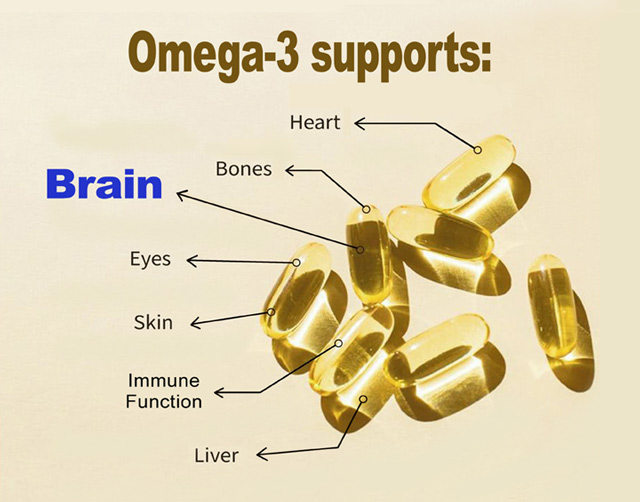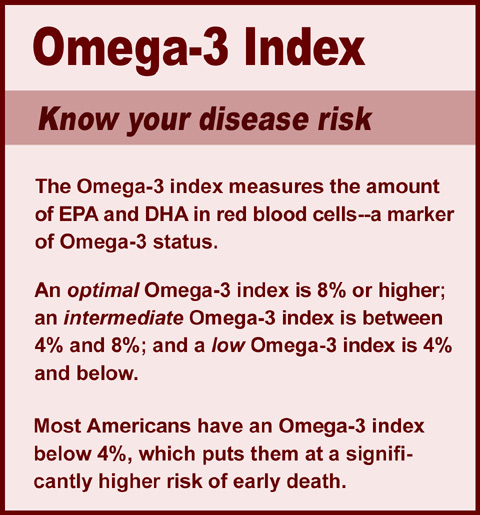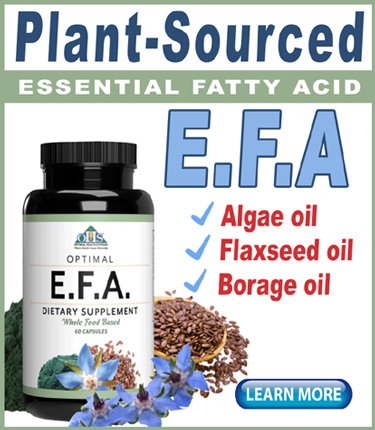As global aging accelerates, the prevalence of cognitive impairment continues to rise. The rise of cognitive impairment is, in turn, challenging healthcare systems around the world. It is also diminishing the quality of life of the millions of people who suffer from it.
With an acknowledgment of this widespread problem, researchers in Portugal set out to assess whether the anti-inflammatory properties of Omega-3 fatty acid supplements could help in reducing the trend.
Omega-3 fatty acids, though critical to human health in numerous ways, are rarely consumed in adequate amounts. This has been demonstrated by surveys using the Omega-3 Index as an assessment tool.
In the eyes of most scientists the cognitive decline benefits of Omega-3 fatty acids are already well-established.
For example, a large-scale study of East Asian countries determined Omega-3 was one of the critical nutrients that could help offset cognitive impairment in that region. Meanwhile, a 2021 study found an Omega-3 supplement with both DHA and EPA fatty acids improved cognitive function in older adults with coronary artery disease.
In the new study, however, the Portuguese researchers noted their desire to settle what they felt were “conflicting conclusions of published studies in humans.”
The research was conducted by researchers based at Hospital de Santa Maria in Lisbon, Portugal. They were aided by researchers at other institutions in Portugal. The results were published in Nutrients in September 2025.
Meta-analysis defined
The collaborating researchers termed their study “a literature search and meta-analysis.” A meta-analysis is a type of study that synthesizes quantitative data from multiple independent studies addressing a common research question.
By combining similar studies the statistical power of research is improved—a method that can resolve uncertainties or discrepancies found in individual studies conducted over lengthy time periods.
Fortunately for the health authorities in Portugal who were searching for economical ways to combat cognitive decline, the results of the meta-analysis did indeed find a positive cognitive benefit from Omega-3 fatty acid supplementing.
According to the researchers, their results revealed “modest but consistent improvements for brain health.”
The researchers also revealed that the findings “are unlikely to be due to chance alone and represent a genuine therapeutic effect.”
Methodology
To conduct the study, the researchers searched for systematic reviews of randomized controlled trials that were specifically designed to assess the effects of Omega-3 fatty acid supplementation on cognitive decline.
They included studies published between 2014 and 2024 that utilized the Mini-Mental State Examination as an assessment tool.
The researchers then conducted a meta-analysis of nine systematic reviews incorporating 14 randomized controlled trials that met the inclusion criteria. In total the trials included 26,881 participants aged 40 years or older. All the trials tracked the effect of EPA and DHA (two types of Omega-3) supplementation on cognitive impairment.
The results showed “statistically significant but modest improvement” in the Mini- Mental State Examination scores following supplementation.
“Our findings suggest a positive association between Omega-3 supplementation and cognitive outcomes across studies with varied dosages and durations,” the researchers wrote in the study summary.
“These findings support Omega-3 supplementation as a complementary approach to lifestyle-based strategies for cognitive health, including diet, physical activity, sleep optimization and cognitive training.”
Related study
Another recent meta-analysis that demonstrated Omega-3’s support for cognitive health was a 2024 University of Pennsylvania study that made an astonishing discovery: Omega-3 supplements significantly reduced aggression in test subjects when compared to a placebo group.
Read more about that study in our earlier post here.
All three Omega-3 essential fatty acids can be found in Optimal E.F.A. by Optimal Health Systems. Click the banner ad on this page to learn more.
– – –
Sources: Nutrients (MDPI.com), The American Journal of Clinical Nutrition, Wikipedia (meta-analysis), Wikipedia (Mini-mental State Examination).



